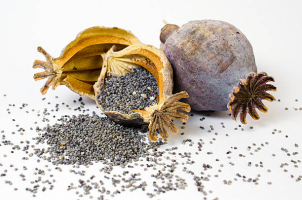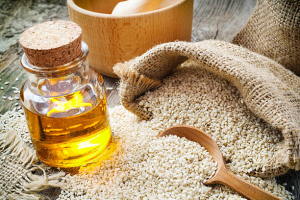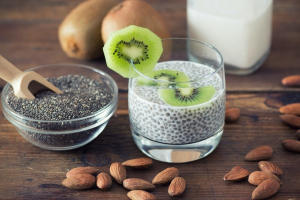Top 9 Health Benefits of Sesame Seeds
The sesamum indicum plant, which has been domesticated for thousands of years, produces tiny, flat, oily seeds in its fruit pods that are known as sesame ... read more...seeds. Sesame seeds may be found in various hues, such as black, brown, tan, gray, gold, and white. Although they are increasingly popular worldwide, black sesame seeds are predominantly produced in Asia. This article discusses the nutritional facts and potential health benefits of sesame seeds. Read on for more information.
-
Sesame seeds are rich in a number of nutrients. Just 2 tablespoons (14 grams) of black sesame seeds contain:
- Calories: 100
- Protein: 3 grams
- Fat: 9 grams
- Carbs: 4 grams
- Fiber: 2 grams
- Calcium: 18% of the Daily Value (DV)
- Magnesium: 16% of the DV
- Phosphorus: 11% of the DV
- Copper: 83% of the DV
- Manganese: 22% of the DV
- Iron: 15% of the DV
- Zinc: 9% of the DV
- Saturated Fat: 1 gram
- Monounsaturated Fat: 3 grams
- Polyunsaturated Fat: 4 grams
Particularly rich in macrominerals and trace minerals are sesame seeds. While macrominerals are needed in greater numbers, your body only needs trace minerals in modest amounts. Improved heart disease risk factors, especially high blood pressure, are linked to increased consumption of macrominerals including calcium and magnesium. Some of the trace elements included in sesame seeds, including iron, copper, and manganese, are crucial for controlling your immune system, metabolism, cell function, and oxygen circulation throughout your body, among other things.
Sesame seeds are an excellent source of beneficial monounsaturated and polyunsaturated fats since they are more than 50% oil. According to the most recent scientific research, switching to a diet high in unsaturated fats instead of meals high in saturated fats may reduce your chance of developing heart disease.
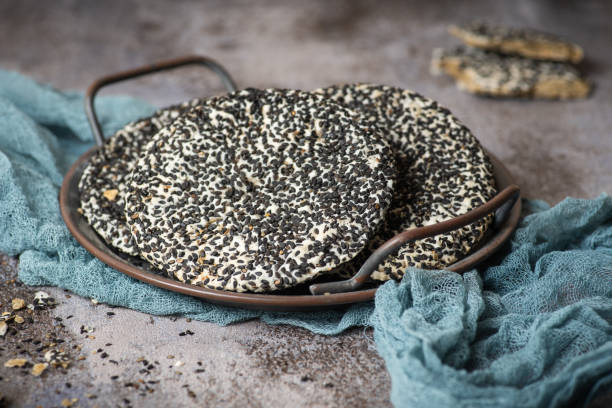
High in nutrients 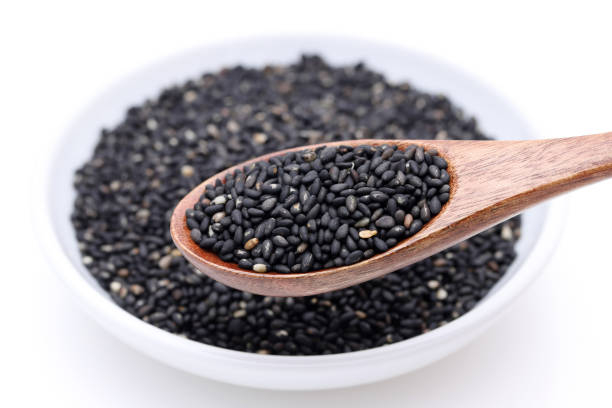
High in nutrients -
Antioxidants are compounds that are crucial in preventing or reducing many forms of cell damage in your body. Oxidative stress is one form of cellular damage that antioxidants are thought to guard against. Numerous chronic diseases, such as diabetes, heart disease, and cancer, may be facilitated by long-term oxidative stress. Antioxidants can be found in some foods more effectively than others. Some of the greatest sources are whole grains, nuts, fruits, and vegetables.
Sesame seeds appear to be a particularly high source of antioxidants and beneficial plant compounds, while other sesame seeds also contain these substances. Additionally, it seems that sprouted black sesame seeds may have even higher concentrations of several antioxidants than unsprouted seeds.
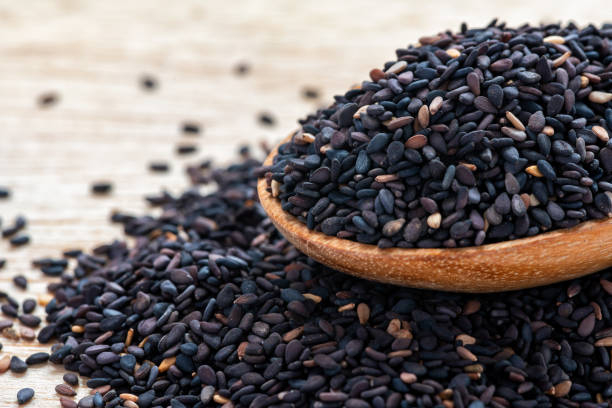
Rich in antioxidants 
Rich in antioxidants -
In a short trial involving 30 individuals, it was shown that taking a capsule containing 2.5 grams of sesame seed meal twice daily for four weeks resulted in a substantial reduction in systolic blood pressure (the highest number on a reading), but a placebo group showed no changes. In addition, a comprehensive review of the literature on the effects of sesame seeds on blood pressure discovered that blood pressure significantly decreased in five out of seven clinical investigations. However, the researchers pointed out that further study with more robust methods was required to support these preliminary findings.
Unhulled sesame seeds in three tablespoons (30 grams) contain 3.5 grams of fiber or 12% of the Reference Daily Intake (RDI). Eating sesame seeds frequently may help you improve your fiber intake because the average American barely consumes half of the RDI for fiber. It is commonly recognized that fiber promotes good intestinal health. Additionally, mounting research indicates that fiber may help lower your chances of developing heart disease, several malignancies, obesity, and type 2 diabetes.
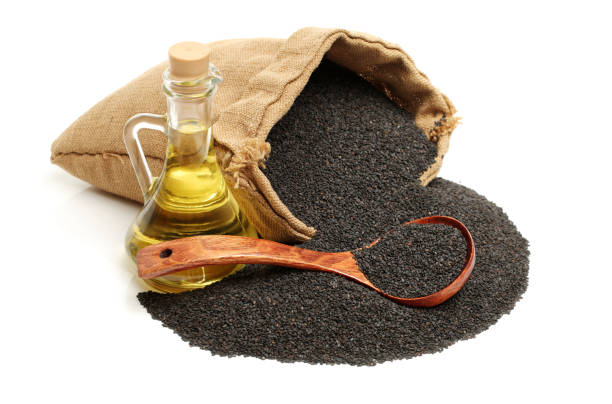
May improve blood pressure 
May improve blood pressure -
Consuming sesame seeds on a daily basis may help lower excessive cholesterol and triglycerides, which are risk factors for heart disease, according to some research. 15 percent of sesame seeds' fats are saturated, 41 percent are polyunsaturated, and 39 percent are monounsaturated. According to research, consuming more polyunsaturated and monounsaturated fat in comparison to saturated fat may help decrease cholesterol and minimize the risk of heart disease.
Additionally, sesame seeds include lignans and phytosterols, two plant chemicals that may potentially decrease cholesterol. 38 participants with high blood lipid levels reduced their "bad" LDL cholesterol by 10% and their triglycerides by 8% when they had 5 tablespoons (40 grams) of hulled sesame seeds every day for two months as opposed to the placebo group.
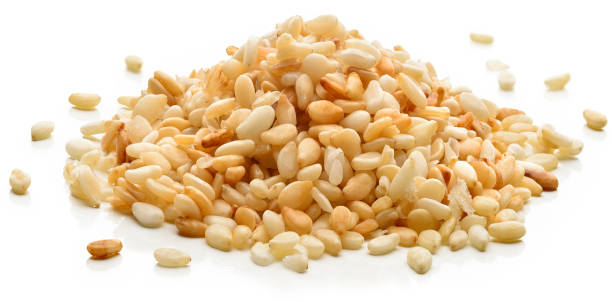
May Lower Cholesterol and Triglycerides 
May Lower Cholesterol and Triglycerides -
Per three tablespoon (30 gram) serving, sesame seeds provide 5 grams of protein. Choose hulled, roasted sesame seeds to optimize the availability of protein. Oxalates and phytates, which impair protein digestion and absorption, are reduced by the hulling and roasting operations. Since it aids in the synthesis of hormones and muscles, protein is crucial for maintaining good health.
Notably, lysine, an important amino acid that is more prevalent in animal products, is low in sesame seeds. Vegans and vegetarians can make up for this by ingesting plant proteins high in lysine, particularly legumes like kidney beans and chickpeas. Sesame seeds, on the other hand, are rich in methionine and cysteine, two amino acids that aren't found in great quantities in legumes.
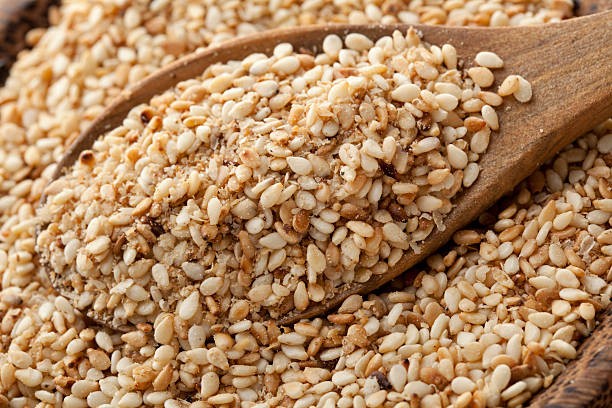
Nutritious Source of Plant Protein 
Nutritious Source of Plant Protein -
Sesame seeds have been researched for their potential to fight cancer in recent years. Sesamol and sesamin, two substances found in sesame seeds, are thought to be a part of what gives them their anticancer qualities. Research on animals and in test tubes has shown that sesamol has anticancer effects. According to this research, the substance has the capacity to reduce oxidative stress, control different cell lifecycle phases, and regulate signaling pathways, all of which are involved in the growth of cancer.
Sesamin also functions as a cancer preventative. Additionally, it appears that the substance encourages apoptosis and autophagy, two processes that result in the death of cancer cells (the removal of damaged cells). Studies on humans and those using entire sesame seeds as opposed to sesame seed concentrates are still missing. So yet, it is unknown how consuming sesame seeds impacts the chance of developing cancer.
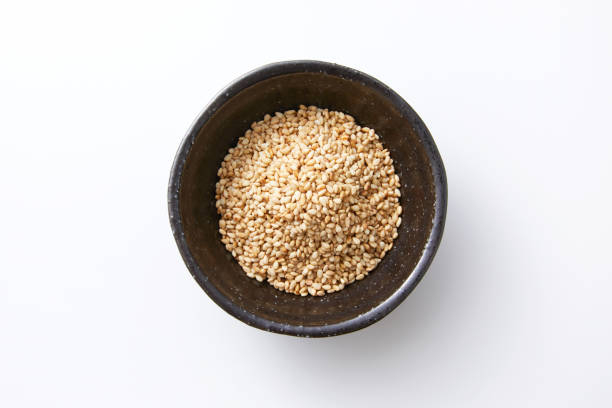
May Have Anticancer Properties 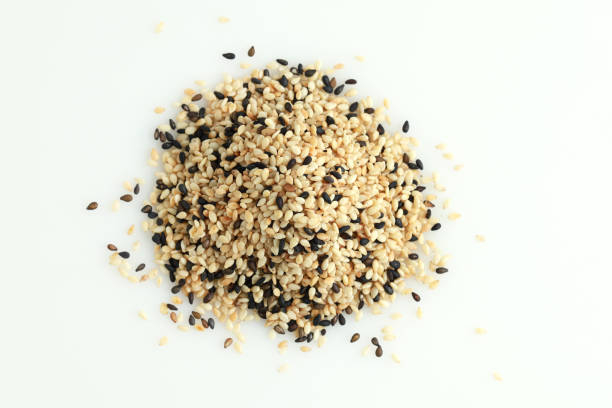
May Have Anticancer Properties -
Products for the skin and hair, including soap, shampoo, and moisturizer, frequently contain sesame seed oils. You might thus question if consuming sesame seeds is also beneficial for the health of your skin and hair. Even while there aren't many studies that specifically look at how eating sesame seeds impacts hair and skin, the seeds do contain a lot of nutrients that are known to support healthy hair and skin.
Other research has looked into using sesame oil topically. As an illustration, a 2011 study discovered that sesame oil might absorb up to 30% of dangerous ultraviolet (UV) light rays. In addition to causing sunburns, UV radiation may also accelerate the aging process of the skin, produce wrinkles, and even cause cancer. A more recent study demonstrated that applying sesame seed oil to the damaged extremities greatly decreased pain in 40 patients who were receiving emergency department care for harm to their limbs. Nevertheless, neither of these investigations explicitly employed sesame seed oil.
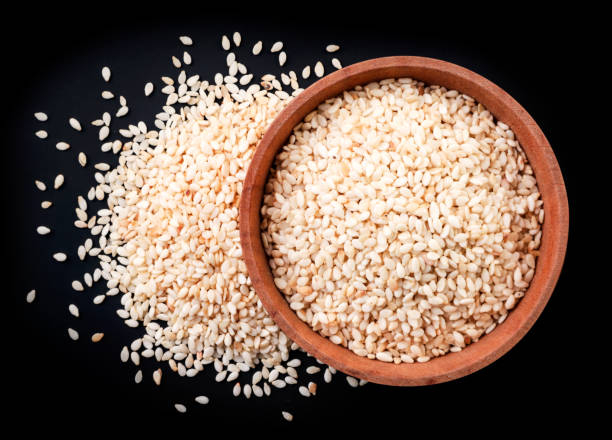
May Promote Healthy Hair and Skin 
May Promote Healthy Hair and Skin -
Inflammation may be reduced by sesame seeds. Numerous chronic diseases, such as obesity, cancer, heart disease, and renal disease, may be impacted by long-term, low-level inflammation. Inflammatory indicators decreased by 51–79% in renal disease patients who had a daily diet of 18 grams of flax seeds and 6 grams of sesame and pumpkin seeds for three months.
Sesame seeds alone may have some anti-inflammatory effects, however, this study examined a variety of seeds, so this is debatable. However, sesame seed oil research in animals also points to anti-inflammatory properties. Sesamin, a substance present in sesame seeds and their oil, may be to blame for this.

May Reduce Inflammation 
May Reduce Inflammation -
The most frequent cause of joint discomfort, osteoarthritis commonly impacts the knees. Arthritis may be brought on by a number of reasons, such as inflammation and oxidative damage to the cartilage that cushions joints. Sesamin, a substance found in sesame seeds, has antioxidant and anti-inflammatory properties that may help to save your cartilage.
Participants in two-month research who had knee arthritis consumed 5 tablespoons (40 grams) of sesame seed powder every day in addition to their medication. Their knee discomfort decreased by 63 percent, compared to just 22 percent for the group receiving just medication therapy. Additionally, the sesame seed group outperformed the control group in a straightforward mobility test and had significant decreases in a number of inflammatory markers.

May Soothe Arthritic Knee Pain 
May Soothe Arthritic Knee Pain











